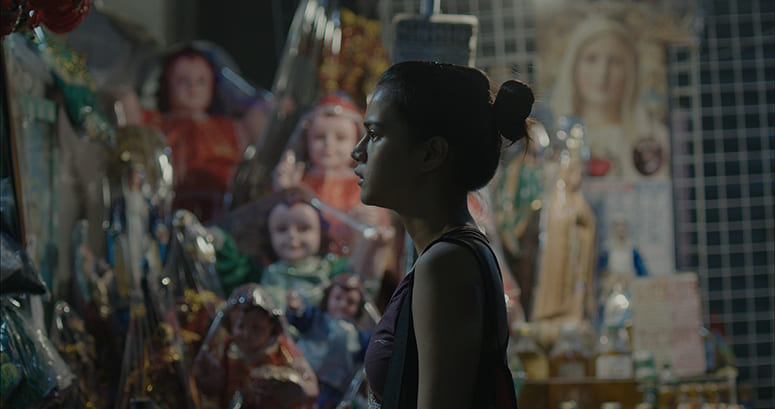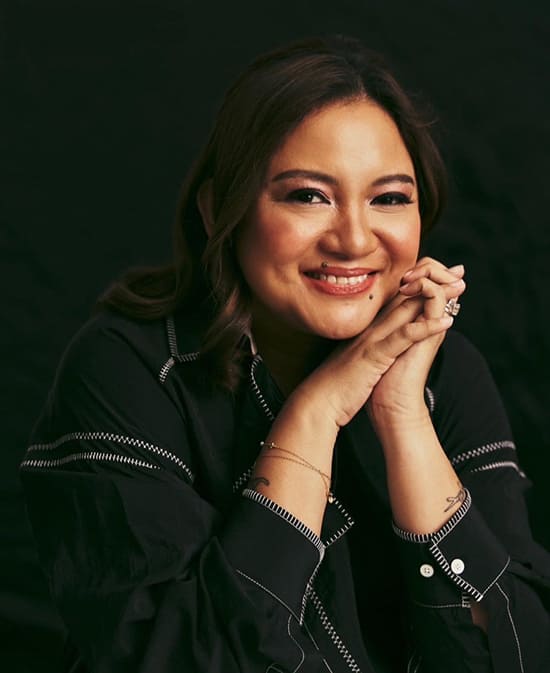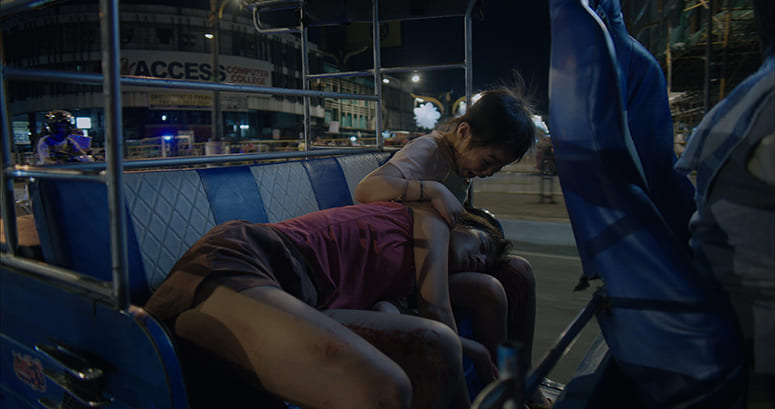Antoinette Jadaone is reimagining the world for young women
“Hindi ako natakot dahil babae ako, mas natakot ako siguro na bata ako o bago ako,” recalls filmmaker Antoinette Jadaone when she first entered the industry.
During her college years at the University of the Philippines Diliman, young Jadaone looked up to filmmakers like Ishmael Bernal and Joyce Bernal for their power to turn romantic comedy into a genre that can still tackle social issues. By the time she started her filmmaking career, Jadaone was lucky enough to join a landscape where women directors, even LGBTQIA+ colleagues, had already been given positions of power.
“Siguro, even then, I was already gravitating towards stories of women, of kids and little girls, without me thinking, ‘Ito ba ay pushing for women empowerment’?”

Admittedly, for Jadaone, it was easy to own this mindset, growing up in a home where women’s voices and opinions heavily mattered. And this instinct would later echo and manifest in the films she wrote and created. The women at the center of her films are flawed, or are owning their agency.
“Tinatanong nga ako, why are all your characters always strong empowered women? Noong una, nahihirapan akong sagutin kasi parang, ‘Ha? ‘Di ba ganun talaga?’”
But while the environments that shaped her gave her the right playground to create, through time, it became apparent to her that it’s not always the case for every woman. And as a storyteller, she began to feel it was her responsibility to accompany her characters throughout their journey in her films.
Her newest award-winning work, Sunshine, which had its Philippine theatrical premiere on July 23, tells the story of a young gymnast on the cusp of her Olympic dreams who faces an unexpected pregnancy. Set in the Philippines, where access to safe abortion remains illegal, the film becomes a coming-of-age journey, exploring bodily autonomy, ambition, and the quiet resilience of a young woman navigating choices unfitting for her age. It’s one of Jadaone’s most urgent films to date, and one that opened a new world to her.
“Alam ko naman na walang safe abortion. Pero hindi ako babad. Hindi ko danas ‘yun so ‘yung nire-research ko at nung ginagawa ko ‘yung Sunshine, may bagong mundo akong nakita. Parang, ‘Bakit hindi ko ‘to alam?’”
Jadaone had already finished writing Sunshine during the pandemic and had tapped the cast and crew. It was only after the world had opened back up that she began filming.
“Mas gusto ko na ‘yung Quiapo na sinulat ko sa Sunshine would be the non-pandemic Quiapo.The Quiapo that's full of different people. ’Yung Quiapo na magulo, mayroong simbahan sa gitna pero paglabas mo may nagbebenta ng pamparegla, mayroong snatcher.”

When asked about the timing of her films, Jadaone believes narratives centered on women would always be relevant and needed. “Lagi talaga siyang kailangan pag-usapan. It can be any time kasi ‘yung para sa mga kababaihan, kabataan, ‘yan yung mga isyu na laging nasa backseat nglegislation.”
Sunshine first premiered at the 2024 Toronto International Film Festival in September, and later earned the Crystal Bear at Berlinale 2025. Its Philippine release came nearly a year after. As the Filipino audience sees the film, Jadaone hopes they leave with one takeaway: it truly takes a village to raise a child.
“Yun ‘yung makikita nila. Si Sunshine ‘yung kid at tayo ‘yung village, and you would see we didn't do a very good job in raising Sunshine, in making the world safe for Sunshine and the different Sunshines in the Philippines,” she shares.
“And we're all complicit (in) whatever happens in the Sunshines of the world, kasi mga bata lang sila at (sa) mundo na ginawa natin para sa kanila, they are forced to be adults.”
While films about women have long existed, solutions to address women’s issues continue to be sidelined. As of today, the Prevention of Adolescent Pregnancy Act, a policy lobbying for sex education and youth protection, remains stalled in the Senate without a single plenary vote.
“As storytellers and as filmmakers, we have to go out of our own bubbles,” Jadaone says. “We have to go out of our own reality, which most of the time is from a place of privilege, and really look for stories that need to be told.”
“The genre may be romantic, comedy, horror, or thriller, pero sa kabila ng kwento ng pag-ibig o trahedya o pagpapatawa, laging may reality diyan na galing sa totoong buhay.”

Before embarking on any project, Jadaone follows a kind of rotary club of questions, one of which is: Does this story need to be told by me?
She acknowledges that it takes the right person to tell a story, and filmmakers should recognize that they should be responsible enough to earn the right to do so. “If the answer is no, I have to research, do a lot of immersion, get the support from different groups, para ‘pag sinabi ko itong kwento na ‘to, I know that I equipped myself with the right tools and information to tell the story, and I could be the right person to tell it.”
We're all complicit (in) whatever happens in the Sunshines of the world, kasi mga bata lang sila at (sa) mundo na ginawa natin para sa kanila, they are forced to be adults.
“Being a filmmaker in a third-world country, the reality of Filipinos will always have a tinge of sadness. It's always like that. Although we love to laugh, (and) we see the good in all things. Sabi nila, very escapist tayo manood ng pelikula at gumawa ng pelikula kasi ‘yung reality, mapait na. Pero the responsibility of a filmmaker is to always mirror what's happening in front of us.”
She adds, “The filmmaker's job is to be able to find ways to make the reality a little easier to swallow.”
***
Sunshine is now showing in theaters nationwide.


